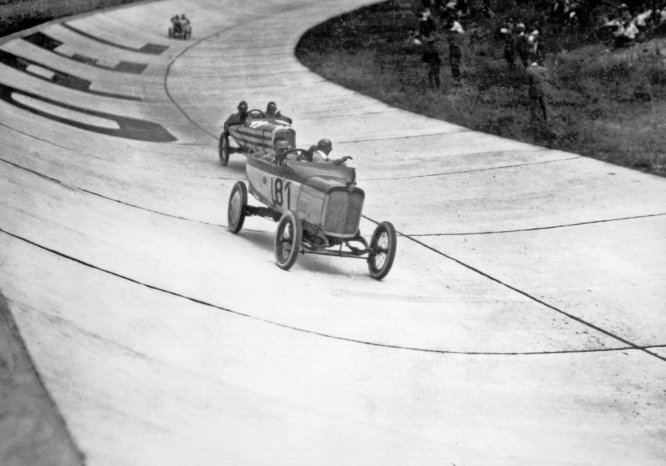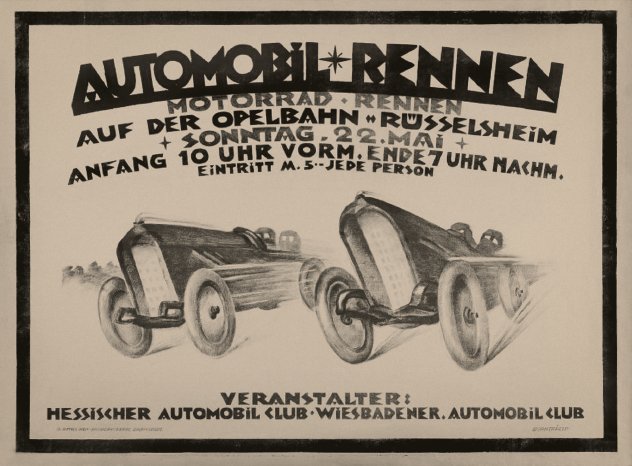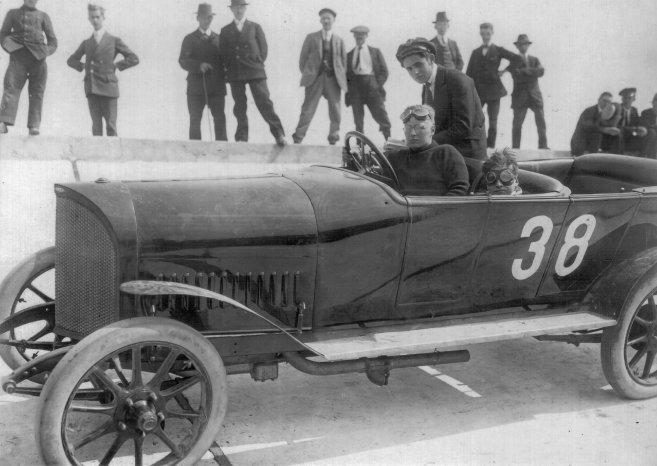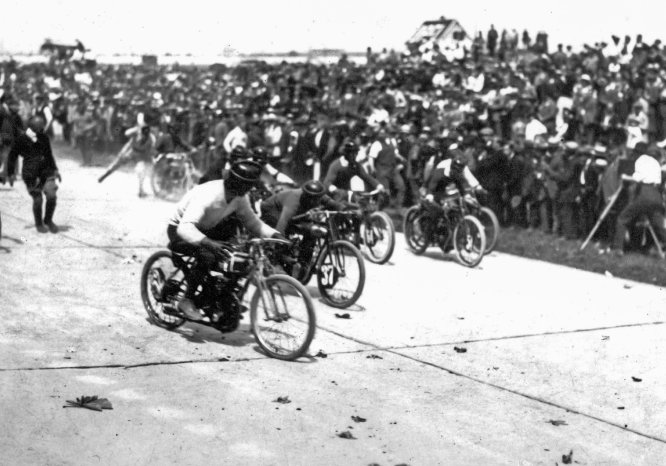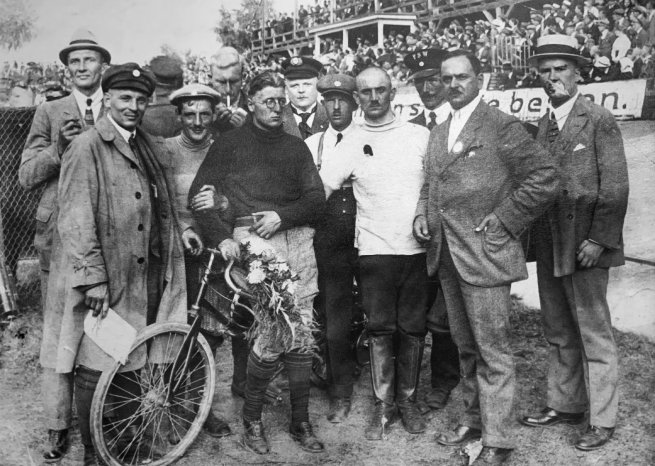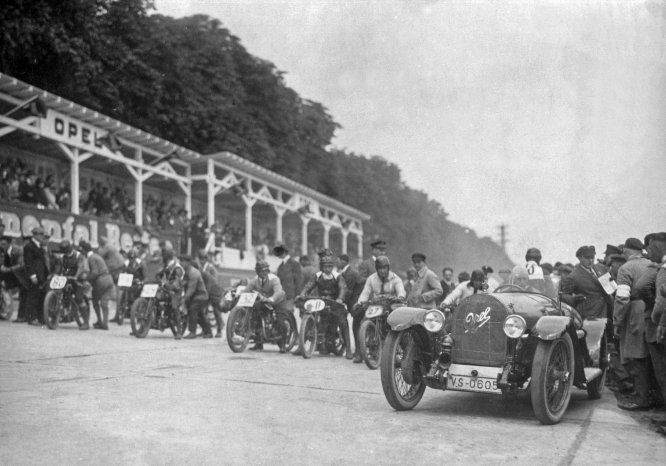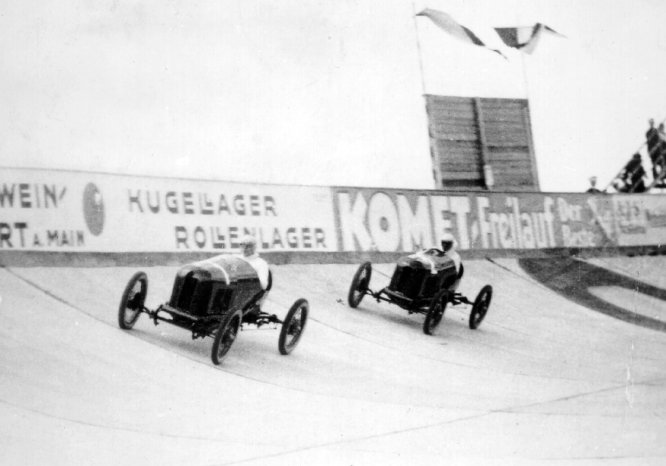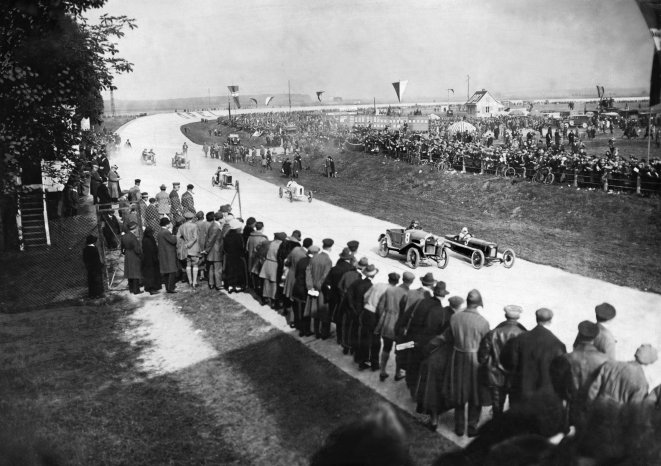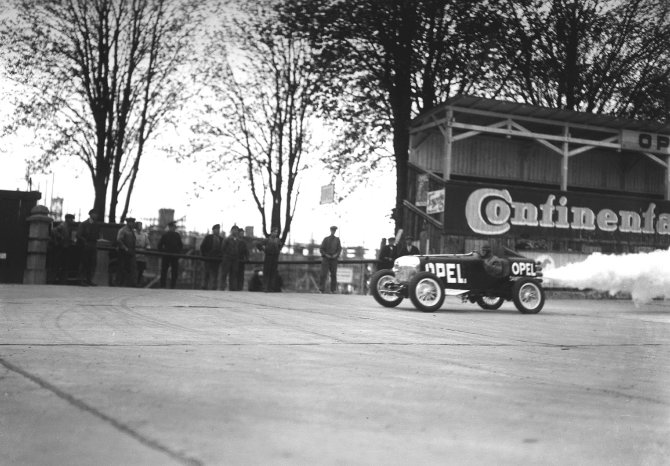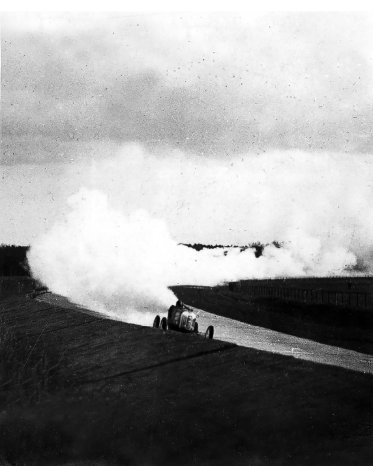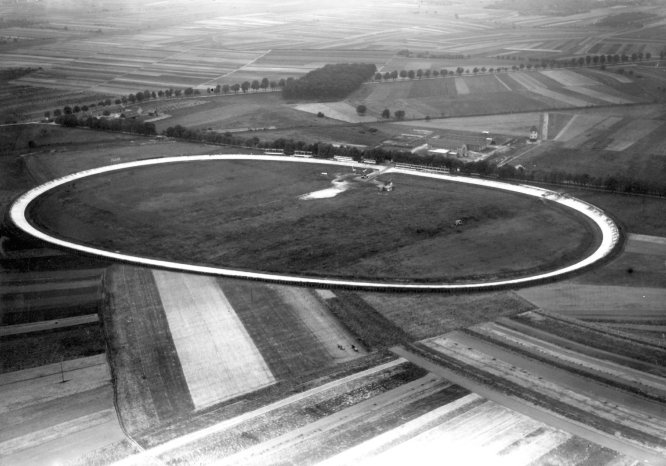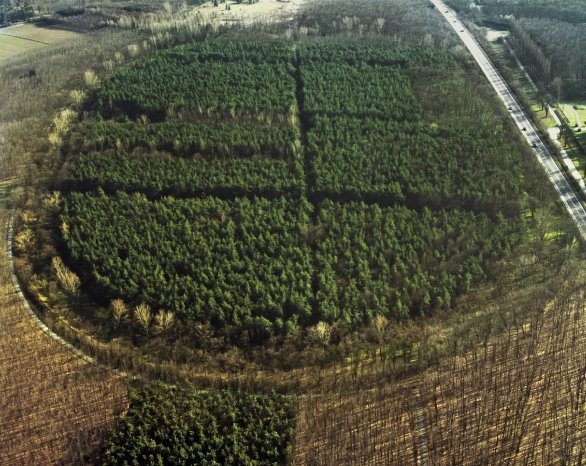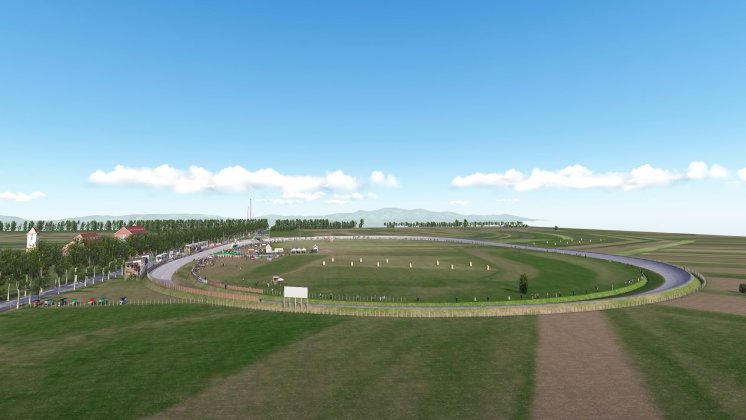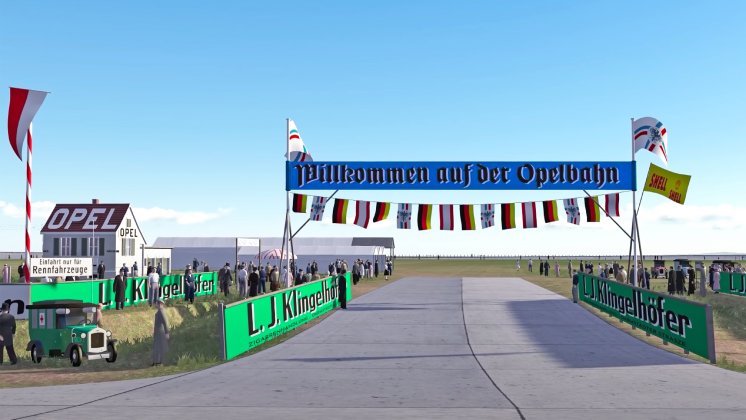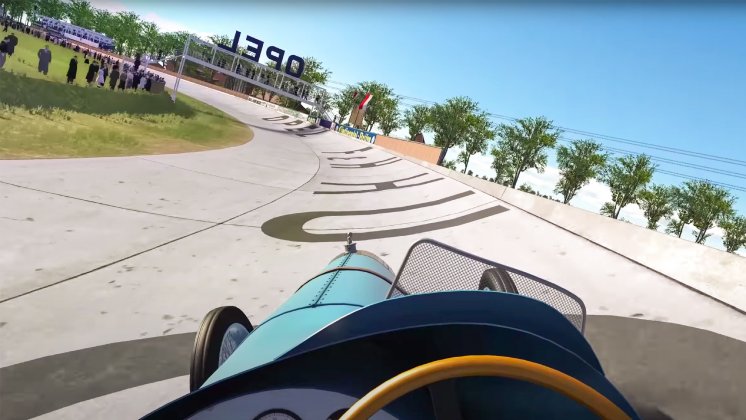- Among the winners: Opel 14 PS, Fritz von Opel and Opel works driver, Carl Jörns
- Fastest: Banked oval allowed up to 140 km/h average speed
- First: Opel Rennbahn predates Nürburgring, AVUS and Hockenheimring
- “Technisches Kulturdenkmal”: Remains of Rennbahn now a cultural heritage site
- Reliving the thrills today: 1920s racing recreated in YouTube simulated racing video
According to contemporary reports, the “1. Wiesbadener Automobil-Turnier” consisted of 12 competitions for automobiles and motorcycles over various distances up to 90 kilometres. Opel machines competed in the majority of races, on two wheels as well as four, with Fritz von Opel – the grandson of company founder Adam – and Opel works driver Carl Jörns at the controls. Driving the Opel 14 PS, Jörns scored two race wins and von Opel – who reached an average speed of 113 km/h – one. The planned 13th race comprising record attempts for cars and motorbikes had to be cancelled, because of the “reckless behaviour of the spectators”!
In the early 1920s, the Opel Rennbahn was known as the fastest motor racing circuit in Europe. Located a few kilometres south of Rüsselsheim, the 1.5-km track was narrow, the banking steep. Safety precautions were almost non-existent. Unlike modern racetracks, there were no crash barriers, gravel traps or extensive run-off areas to stop or slow down the cars if they went off. The spectators stood unprotected at the edge of the track. Today it is possible to experience some of the thrills of racing in that era, thanks to a video recently posted on YouTube.
Using “Assetto Corsa” sim racing software and artificial intelligence (AI), YouTuber “GP Laps” has staged a virtual race on a 3D model of the 1920s Rennbahn built by Thomas Lächele. The details are very realistic – from the grandstands, spectators and trackside advertising, to the sound of the cars’ engines and even brand logos painted on the track surface.
Judging by the enthusiastic comments on YouTube, the virtual Opel oval is unique and one of the best-looking race circuits in sim racing. The real “Opel Rennbahn” was the first racetrack of its kind in continental Europe, created long before the Nürburgring, AVUS or Hockenheimring. It was built by Opel in 1919 when the continuation of testing on public roads became unfeasible (i.e. unpopular with the locals). Thanks to the oval layout, 12-metre width and steep, 32-degree banked curves, average speeds of up to 140 km/h were possible.
Rocket powered: “Raketen-Fritz” also tested Rak 1 on the Opel Rennbahn
The track held races for bicycles as well as motorbikes and cars, and in its heyday drew crowds of up to 50,000 spectators. Famous racing drivers of the era, like Rudolf Caracciola, were among the daring starters.
Opel also continued to use the track for testing new models and developments. The highlights included Fritz von Opel’s spectacular trial runs with the rocket-powered “Rak 1” in April 1928, which also earned him the nickname “Raketen-Fritz” (rocket-man Fritz).
From the 1930s onwards, following rapid developments in motor racing and the opening of the Nürburging, AVUS and the Hockenheimring, fewer and fewer races took place at the “Rennbahn”. The track fell into disuse in 1946 but was not demolished.
Today, what is left of the “Rennbahn” is a “technisches Kulturdenkmal” (technical cultural heritage site). Most of the track is now overgrown with trees, bushes and grass, but the remnants of the banked curves in particular are still visible. Since 2013, a visitor platform with information boards stretches over part of the track.
